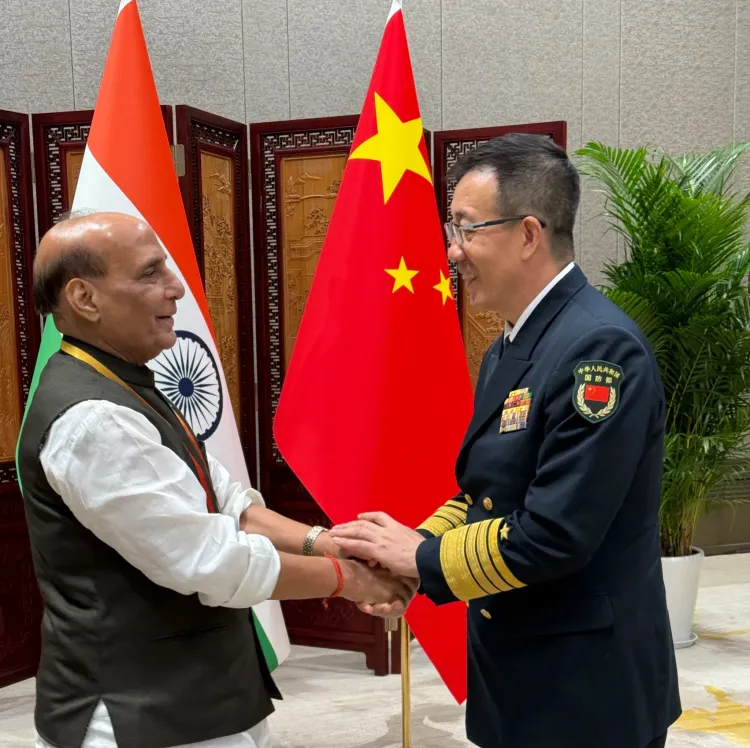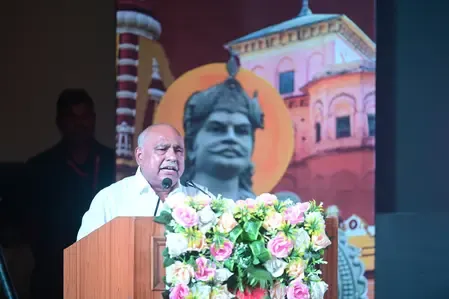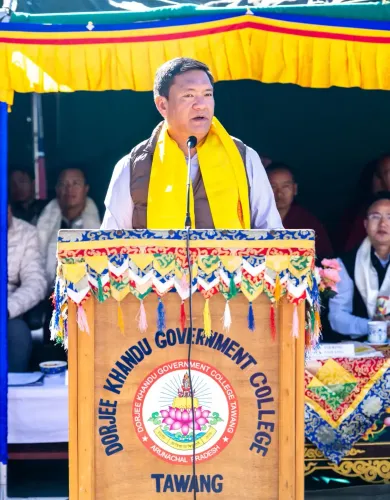Did Rajnath Singh Just Meet the Chinese Defence Minister?

Synopsis
Key Takeaways
- Importance of maintaining positive relations
- Constructive dialogue on bilateral ties
- Resumption of Kailash Mansarovar Yatra
- Concerns about terrorism must be addressed
- Need for accountability among terror sponsors
New Delhi, June 27 (NationPress) Defence Minister Rajnath Singh engaged in discussions with his Chinese counterpart, Admiral Don Jun, during the Shanghai Cooperation Organisation (SCO) Defence Ministers meeting held in Qingdao, China.
In a post on his X handle, Singh emphasized the need for both nations to sustain a positive momentum and refrain from introducing new complexities into their bilateral relationship.
He mentioned that he and General Don Jun had a constructive and forward-looking exchange of views regarding their diplomatic ties.
The Defence Minister expressed his joy over the resumption of the Kailash Mansarovar Yatra.
“I had discussions with Admiral Don Jun, the Defence Minister of China, during the SCO Defence Ministers’ Meeting in Qingdao. We engaged in a constructive and forward-looking dialogue on matters concerning our bilateral relations. I expressed my happiness about the resumption of the Kailash Mansarovar Yatra after nearly six years. It is crucial for both sides to uphold this positive momentum and avert the introduction of new complexities in our relationship,” Singh stated on his X handle.
A Chinese account of the meeting indicated that India is not seeking confrontation with China but aims to enhance communication and mutual trust.
On Thursday, India did not endorse the joint declaration at the SCO Defence Ministers’ meeting due to the exclusion of terrorism-related concerns.
India insisted that its concerns regarding terrorism be included in the statement, which was not acceptable to one specific country, leading to the document's failure to be adopted.
“I acknowledge that the Defence Ministers could not reach a consensus on the joint statement, and thus the document was not finalized. From our perspective, India sought to have its terrorism-related concerns reflected in the document, which was not acceptable to one particular nation, resulting in the statement's failure to be adopted,” stated Ministry of External Affairs (MEA) spokesperson Randhir Jaiswal during a weekly media briefing on Thursday.
In his address at the SCO gathering, Defence Minister Singh referred to the tragic April 22 Pahalgam terror attack that took the lives of 26 civilians, including a Nepali national, asserting that India exercised its right to self-defense through Operation Sindoor to dismantle cross-border terrorist infrastructure. He also urged the SCO nations to reject double standards and hold those who sponsor terrorism accountable.









